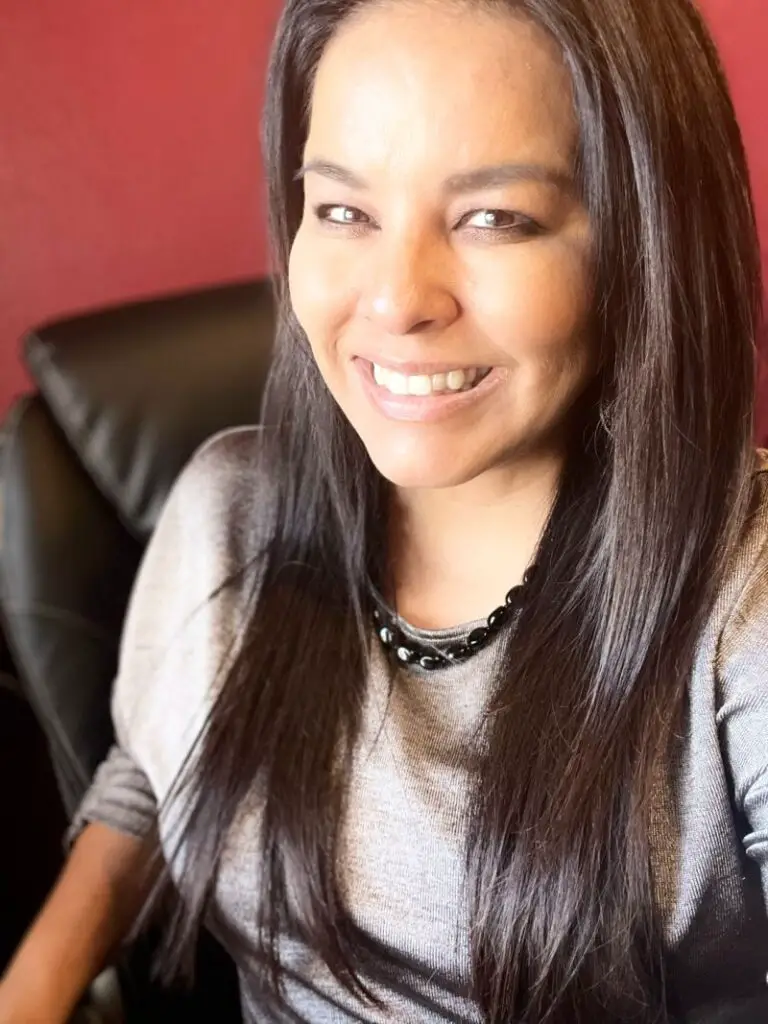(**) Disclosure: This post may contain affiliate links, meaning RealEstateCareerHQ.com will get a commission if you decide to make a purchase through the links, but at no additional cost to you.
To become a notary signing agent in Minnesota, an applicant must meet the state-eligibility requirement, submit a Notary Public Application to the Minnesota Secretary of State, pay the $120 filing fee, purchase the notary stamp and other business supplies.
Although you could work on many different documents, this guide will focus more on the loan signing aspect in the real estate market.
So what does a notary loan signing agent do in Minnesota? When people are getting a mortgage to purchase a house, or they need to refinance their property, there will be loan documents involved. Your role as a notary loan signing agent is to walk through the set of loan documents with the borrower and witness them in signing the paperwork.
You would also need to verify the identity of the signers, place the notary stamp on the signed documents, then send them back to the escrow company.
But keep in mind that you should NOT be providing legal advice, and you cannot explain the terms of the loan documents to the borrower.
In this guide, you’ll learn the steps to become a notary loan signing agent in Minnesota, income updates, and FAQ about this profession.
Would you like to learn how to make $75 to $200 per signing appointment? You must check out the Loan Signing System from Mark Wills. (**) This is one of the best training programs for loan signing agents. Many students have achieved remarkable business success after taking this program.
6 Steps to Become a Notary Signing Agent in Minnesota

Step 1: Meet the basic requirement
- At least 18 years of age
- Legal resident of Minnesota; OR resident of a county in Iowa, North Dakota, South Dakota or Wisconsin and list the Minnesota County the applicant will be filing in upon receiving their commission
- Able to read and write English
Step 2: Submit the notary commission application to the Minnesota Secretary of State

The Minnesota Secretary of State is the office that grants the notary commission to applicants and maintains records of all notaries public in Minnesota.
You need to fill out the “Notary Commission Application.” The questions on the application are pretty strict forward—for example, your name, business address, background info.
Make sure the signature on the application will be the same as when you are notarizing documents.
There is a $120 application fee and can be paid by a check or money order. You could make it payable to “OFFICE OF THE SECRETARY OF STATE.”
Once you filled out the application, you may mail it to: Minnesota Secretary of State – Notary Retirement Systems of Minnesota Building, 60 Empire Drive, Suite 100, St. Paul, MN 55103
Step 3: Review the notary certificate

Once everything is in good order, the MN Secretary of State will mail you the Commission Certificate. You should review and make sure all the details are correct. (e.g., your name, county of residence, commission dates).
Then you would register the notary commission a the county office. The county name and telephone number will be provided in the instructions section of your commission certificate. There is a $20.00 fee charged at the county level.
Step 4: Get a notary seal

To start the notary signing business in Minnesota, you must have a notary seal. This helps you to include specific info in every document so you won’t leave out any required details.
You may purchase the notary seal from office supplies store. Also, its design must comply with the regulatory rules.
The official notarial stamp consists of the seal of the state of Minnesota, the name of the notary as it appears on the commission or the name of the ex officio notary, the words “Notary Public,” or “Notarial Officer” in the case of an ex officio notary, and the words “My commission expires …………… (or where applicable) My term is indeterminate,” with the expiration date shown on it and must be able to be reproduced in any legibly reproducible manner.
The official notarial stamp shall be a rectangular form of not more than three-fourths of an inch vertically by 2-1/2 inches horizontally, with a serrated or milled edge border, and shall contain the information required by this subdivision.
Quote from Minnesota Statutes, 359.03 STAMP; REGISTER. Subd. 3
You must keep the notary seal in a locked and secured area, where only you have direct and exclusive control of it. (e.g. a locked drawer or cabinet.)
Step 5: Maintain a notary journal

As a notary signing agent in Minnesota, the State law does not require to keep a business journal.
However, maintaining a good record of your notary acts is an essential part of good business practice. It could serve as proof that you have taken reasonable steps to identify the signer of a document.
If you’re using a paper format journal, it is better to have one bounded with pre-printed pages. You may find it at stationery, office supply stores, or through notary associations.
Consider recording the following in your journal:
- Date of notarial act;
- Type of notarial act performed;
- A description of the document;
- The signature and printed name and address of each person for whom a notarial act was performed;
- A description of the form of identification provided (i.e. driver’s license or photo identification) or a statement that the person was “personally known” to the notary;
- The location where the notarization was performed;
- The amount of fee charged, if any; and
- Personal notes.
It is better to retain the journal for a reasonable period. Some States would require a notary signing agent to keep the record for at least ten years.
Furthermore, besides keeping a physical journal, you could consider maintaining one in electronic format. Make sure it is tamper-evident and complies with the regulatory standard.
Step 6 : Obtain a Closing Agent license
In addition to the notary public commission certification, you also need the Closing Agent license.
“Closing agent” or “real estate closing agent” means any person whether or not acting as an agent for a title insurance agent, a licensed attorney, real estate broker, or real estate salesperson, who for another and with or without a commission, fee, or other valuable consideration or with or without the intention or expectation of receiving a commission, fee, or other valuable consideration, directly or indirectly provides closing services incident to the sale, trade, lease, or loan of residential real estate, including drawing or assisting in drawing papers incident to the sale, trade, lease, or loan, or advertises or claims to be engaged in these activities.”
Quote from 2019 Minnesota Statutes, 82.55 DEFINITIONS., Subd. 4
This helps to add another layer of protection for consumers against improper conduct and negligence. To obtain such a license, you must complete the required pre-licensing education, submit the application, and pay the registration fee.
You may check with the Minnesota Commerce Department for more details. I will also leave their link in the reference section at the end of the post.
Electronic notarization in Minnesota

One thing I really like about this industry in Minnesota is the option for notary to work digitally. Doing so could bring you great convenience to streamline your notary practice.
But let me first explain the difference between “Electronic notarization” and “Remote notarization.”
“Electronic notarization,” sometimes known as “e-notary,” is where you meet the signer in person, but the documents are signed and notarized digitally.
On the other hand, “Remote notarization” is also being done digitally. But you are not physically present with the signer. Instead, you would verify their the signer’s identity through video and audio conference.
As I’m reading the MN Secretary of State website, both electronic and remote notarization are allowed.
How to become a remote online and electronic notary in Minnesota?

To become a remote online or electronic notary in Minnesota, you must first be registered as a notary public in the state. Then you need to complete the E-Notarization Authorization form and the Remote Online Notarization form. There is no fee to apply.
You would need an electronic platform to conduct the e-notarization. This may include fingerprinting, digital signing pads, cloud-based and encryption processes.
Make sure to choose an authorized vendor that complies with the regulatory rules. It must offer a high level of reliability and security to a notarized document.
Here is a list of technology companies I found on the MN Secretary of States website:
- Digital Delivery, Inc.
- Nexsys
- Notarize
- NotaryCam
- Onlinenotary.net
- OnlineNotary.us
- Pavaso
- SIGNIX
- World Wide Notary
How much do notary loan signing agents make in Minnesota?
The average annual income of Loan Signing Agents in Minnesota is $48,212. The income typically ranges between $28,294 to $57,532. Top earning loan signing agents in Minnesota are making over $85,827.
As a notary, you could work on different documents, but the loan signing in the real estate market could be a lucrative niche.
Top 10 Highest Paying Cities for Loan Signing Agents in Minnesota
| City | Annual Salary |
|---|---|
| Rochester | $52,717 |
| Minneapolis | $50,769 |
| Bloomington | $49,595 |
| Plymouth | $47,575 |
| Brooklyn Park | $46,742 |
| Maple Grove | $46,227 |
| Woodbury | $45,936 |
| St. Paul | $45,644 |
| St. Cloud | $45,641 |
| Duluth | $45,389 |
source: ZipRecruiter – March 13, 2022
How’s the loan signing business? Let’s hear from the Loan System Ambassador!

” I’m in Arizona, and the average fee for signings is $150 for purchases and refi’s and $125 for seller docs. With my signing service, I bring in about $30K per month.
I’m still growing my business and hope to double that by the end of the year. It’s definitely not easy to get business and takes a lot of time, effort, and hard work. I set weekly, monthly and yearly goals for myself and my business and how I want to grow it. “
– Irene Rueda, Loan Signing Agent and Arizona Loan Signing Ambassador
What’s a better way to learn about the notary loan signing business than speaking to someone who is incredibly successful in the industry?!! Here’s an exclusive interview with Irene Rueda, where she shared her journey in the loan signing business, how she got from making $800/m to $30,000/m and her thoughts about Mark Wills’s LSS training program. Be sure to check it out!
Is there demand for notary loan signing agent in Minnesota?
As long as people are obtaining mortgages or refinancing their homes, there would be a demand for notary loan signing agents in Minnesota.
All originated mortgages in Minnesota
| YEAR | Originated mortgages |
|---|---|
| 2017 | 154,164 |
| 2016 | 176,922 |
| 2015 | 160,605 |
| 2014 | 123,374 |
| 2013 | 187,475 |
| 2012 | 222,116 |
| 2011 | 151,782 |
| 2010 | 177,556 |
| 2009 | 195,958 |
| 2008 | 130,815 |
| 2007 | 171,217 |
Source: Consumer Financial Protection Bureau – Home Mortgage Disclosure Act (HMDA) (July 04, 2020)
Furthermore, some states are “Attorney states,” which means only an attorney can handle the closing paperwork. Whereas, others are “Escrow States” where a loan signing agent can do the work.
According to the First American Title, Minnesota is a not an “Attorney State,” which is good news if you are interested in starting a notary loan signing business.
As I’m browsing on the MN Notary Database, there are 88,700 active notaries. But I also see that there are only 2561 registered as a remote online notary. To gain a competitive edge in your notary business, becoming a RON is certainly worth considering.
If you want to succeed in the loan signing industry, you must check out this loan system training program. If you review the testimonials of his students, you’ll be amazed at how the notary career changes their life after they learned from Mark Wills. (**)
What education do you need to become a Minnesota notary public?
There is no education requirement to become a notary public in Minnesota. But there are several good resources on the MN Secretary of States to learn about this profession. For instance,
- The Notary Commission Guide
- Notary FAQ
- Remote Notarization FAQ
Furthermore, as I’m writing the MN Secretary of State website, they listed the following notary training providers.
- American Society of Notaries
- Jeanne Johnson & Associates LLC
- National Notary Association
- Notary Learning Center Inc.
- Notary.net
Is there an exam to become a notary in Minnesota?
There is no exam requirement to become notary in Minnesota.
How much does it cost to become a notary in Minnesota?

It would cost approximately $172 to become a notary in Minnesota.
Here’s a breakdown of the costs to start a notary signing business
| Notary Application | $120 |
| County Registration Fee | $20 |
| Notary Stamp | $17 |
| Journal | $15 |
There could be other expenses involved, such as E&O insurance, travel expenses, car maintenance, auto insurance, electronic notary technology, laptop and other business supplies.
If you want to become a loan signing agent in Minnesota, you need to account for the pre-licensing course, and license fees.
Can a felon be a notary signing agent in Minnesota?

Having a conviction for a felony may impact the application to become a notary signing agent in Minnesota. The MN Secretary of State needs to make sure that you are a person with credibility, truthfulness, and integrity to fulfill the responsibilities of the position.
As I’m reading the Notary Commission Appointment, it has the following questions:
1. Have you ever been the subject of any inquiry or investigation by any state agency?
2. Have you or has any occupational license held by you been censured, suspended, revoked, canceled, terminated or otherwise been the subject to any type of administrative action in any state including Minnesota?
3. Have you ever been charged with, or convicted of, or been indicted for, or entered a plea to, any criminal offense (felony, gross misdemeanor or misdemeanor), in any State or Federal Court? You may exclude the
following misdemeanor convictions or pending misdemeanor charges: traffic citations, DUI, DWI or driving without a license, reckless driving, or driving with a suspended or revoked license. You may also exclude
juvenile adjudications (offenses where you were adjudicated delinquent in a juvenile court).4. Have you been a defendant in any lawsuit involving claims of fraud, misrepresentation, conversion,
Quote from Notary Commission Application
mismanagement of funds, breach of fiduciary duty or breach of contract?
Having a felony does not necessarily mean your application will automatically be declined. It depends on the severity and nature of the conviction. The Minnesota Secretary of State would review it on a case-by-case basis.
If you answer ‘yes’ to any of the above questions, they need to provide further documents about the offense. Also, the MN Secretary of State would conduct a criminal background check on you.
How long does it take to become a notary signing agent in Minnesota?

That would depend on whether the MN Secretary of State needs to perform a criminal background check and how quickly you register the commission at the county office after you receive the certificate.
So my guess is it should only take a few weeks to become a notary signing agent in Minnesota.
How to renew notary commission in Minnesota?
To renew the notary commission in Minnesota, you need to reapply every 5 years. The commission expires on Jan 31st of the fifth year following the year of issue.
You can re-submit the Notary Commission Application, which is the same form for your initial appointment. A quicker way is to renew online at the Secretary of State website.
But either way, there is a $120 renewal fee.
By then, you would need to get a notary seal with a new expiry date. Also, you are required to re-register the new commission at the county office.
To avoid an interrupted business period, begin the renewal process in advance. Don’t wait till your current notary commission is expired.
Can I notarize for a family member in Minnesota?

You must not notarize any documents where you have any financial or beneficial interest in the transaction. Therefore, notarizing a document for any family member could call into question, and such practice should be avoided.
I have more questions about being a notary loan signing agent in Minnesota, where could I obtain more details?
You may contact the Minnesota Secretary of State:
- Retirement Systems of Minnesota Building, 60 Empire Drive, Suite 100, St Paul MN 55103
- 651-296-2803 (toll free at 1-877-551-6767) opt 3
- Notary Email: notary.sos@state.mn.us
If you are reading up to this point, I bet you must be interested in the notary signing profession. But why reinvent the wheel when there is a proven system that works? Many students had great success following the Loan Signing System (LSS) from Mark Wills. You may click here to check it out yourself. (**)
Disclaimer: The information in this post is for general information only, and not intend to provide any advice. They are subjected to change without any notice, and not guaranteed to be error-free. Some of the posts on this site may contain views and opinions from individual not related to JCHQ Publishing. They do not necessarily reflect our view or position.
(**) Affiliate Disclosure: Please note that some of the links above are affiliate links, and at no additional cost to you. Our company, JCHQ Publishing will earn a commission if you decide to make a purchase after clicking on the link. Please understand that we include them based on our experience or the research on these companies or products, and we recommend them because they are helpful and useful, not because of the small commissions we make if you decide to buy something through the links. Please do not spend any money on these products unless you feel you need them or that they will help you achieve your goals.
Reference:
- First American Title- Your Guide to Real Estate Customs by State (source)
- Minnesota Secretary of State (source)
- Minnesota Statutes – CHAPTER 359. NOTARIES PUBLIC (source)
- Salary.com – Notary Signing Agent Salary in Minnesota (source)
- ZipRecruiter – Loan Signing Agent Salary in Minnesota (source)
- Consumer Financial Protection Bureau – Home Mortgage Disclosure Act (HMDA) (source)
- Minnesota Commerce Department – Apply for Real Estate License (source)
- Minnesota Legislature – 2019 Minnesota Statutes (source)
- National Notary Association -Minnesota Clarifies That NSAs Must Be Licensed ‘Closing Agents’ (source)

